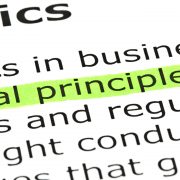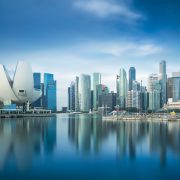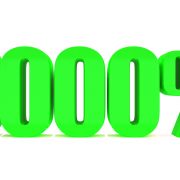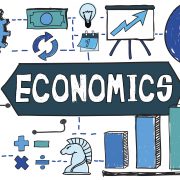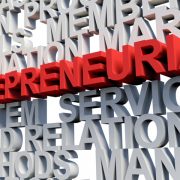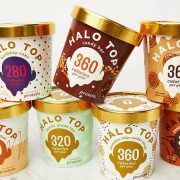Many call for ‘pausing’ the economy during the pandemic, and then, presumably, ‘press play’ again when it’s safe to do so. But this fundamentally misunderstands what an economy is.
The market economy is better understood as an economic organism than a machine or mechanical system. An economy does not come with levers and controls, it has no brakes and no gas pedal, and it certainly cannot be stopped to then be restarted. The economy is, simply put, our collective organizing of scarce (meaning we would be better off with more) resources toward satisfying people’s wants through the production of goods and services. This ‘organism’ consists of the constant improvements and adjustments of autonomous producers who are interdependent in the web of creation directed by the generation of valuable outcomes.
While many prefer to belittle this advanced web of human activity and effort by calling it “‘only’ the economy,” presumably contrasted by “other values,” they only reveal their ignorance. The economy is not about ‘stuff’, but about contributing, to the best of our joint ability, to people’s well- being. Much of this is through production of things and gadgets, but what the critics fail to realize is that those are valued only for the experiences and comforts they bring. ‘Stuff’ is produced when people think other people are best benefitted by such things. But where this is not so, those engaging in such production lose everything they bet on it. The consumer, by which is meant any person looking to increase their wellbeing, is sovereign: any and all production efforts can in an instant and even at a whim be rejected by consumers and thereby the undertaker be put out of business.
The target of ‘the economy’ is the satisfaction of consumers, and the ‘aiming’ for it is done by entrepreneurs putting their own belongings and livelihoods on the line. Should they fail, meaning not only that they do not provide consumers with satisfaction but also that someone else did so to a greater extent, the effort and investment is lost. Should they succeed, they profit if they have been able to keep costs below the price consumers were willing to pay. The consumer always benefits; the entrepreneur gets part of the proceeds if successful. Within the mass of attempts by those who are imaginative regarding how to satisfy consumers and sure enough to try it out despite the risk of loss, labor is remunerated for its expected contribution.
We, as providers of labor, can command higher wages if we become more productive in entrepreneurs’ uncertain production undertakings. The more we specialize, the greater our output per hour invested. The more tools (capital) we have, the greater our output. Most of our economy today is involved in producing productivity: generating and disseminating knowledge and skills, creating and refining tools and machines. These investments increase future output and, therefore, increase consumers’ wellbeing–and increase wages.
This is the division of labor, a core means by which an economy increases its efficiency and output. But it would be helpless were it not for prices, generated as entrepreneurs bid for resources to use in production with expected prices for outputs in mind. Prices represent entrepreneurs’ collective best guesses of how much their efforts will be worth to consumers, and labor captures its contribution in wages as entrepreneurs compete to add their time and effort to production. In general, the more productive an economy, the higher the wages; and the more productive a person, the higher their wages. But wages are agreed on and paid before profits (or losses) are realized. Employees do not bear the risk but are paid as providers of input to production.
The consumer (typically an employee using their earned wages) still gets to determine the fate of the entrepreneur’s undertaking. It is through the decision to buy or not that we approve (or not) of what entrepreneurs have done. While entrepreneurs ‘direct’ the economy by establishing production, many of these productions will fail and falter. Because consumers did not think it was good enough. This is how the economy continuously adjusts and recreates itself: entrepreneurs attempting production, thereby attracting scarce means (resources, tools, workers’ effort), and consumers giving the final ???? / ????.
What we today see as ‘the economy’, in which we earn and spend our wages, is our present level of accomplishment
in this process of discovery and creation which consistently progresses to greater levels of productivity and, thus, prosperity and wellbeing. We are literally enjoying the outcome of hundreds, if not many thousands, of years of evolution, in which millions of people have attempted to figure out how to best serve consumers using the little means made available to them through previous discoveries and successes. The prosperity we presently enjoy is at a level previous generations could not even imagine. Yet, they created it and we are only building on their legacy. Importantly, this amazing process has only recently taken form and accelerated, yet has already lifted billions out of abject poverty. It is far from done yet, and just like was the case for generations before us we cannot even fathom what life in the future will be like.
The only limit to what this process can accomplish is human imagination. And what imaginations will be rewarded is decided by consumers in the choices they make. Wherever consumers are expected to have urgent wants that remain unsatisfied, this is where we will see entrepreneurs focus their efforts. When and if consumers prefer improvements to healthcare, this is where this process will take us–with more investments, more innovation, more attempts, and more jobs.
While many would simply dismiss what I’ve stated as utopian or even ideology, this is another indication of their fundamental ignorance. We know a great deal of how this process works–and how it is affected by attempts to forcefully improve it. Obviously, this process is by no means perfect. But it is, as I noted in my 2016 book The Seen, the Unseen, and the Unrealized, an unbeatable process. And it cannot remain in one place. Just like an organism, it must change and evolve. Consumers’ variable and changing situations demand it. There are only two ways this process can go: progress or demise. To ‘pause’ this process is akin to killing it. And with it, we will be killing not only production of stuff, but also our wellbeing, prosperity, and ability to support and improve people’s lives.

